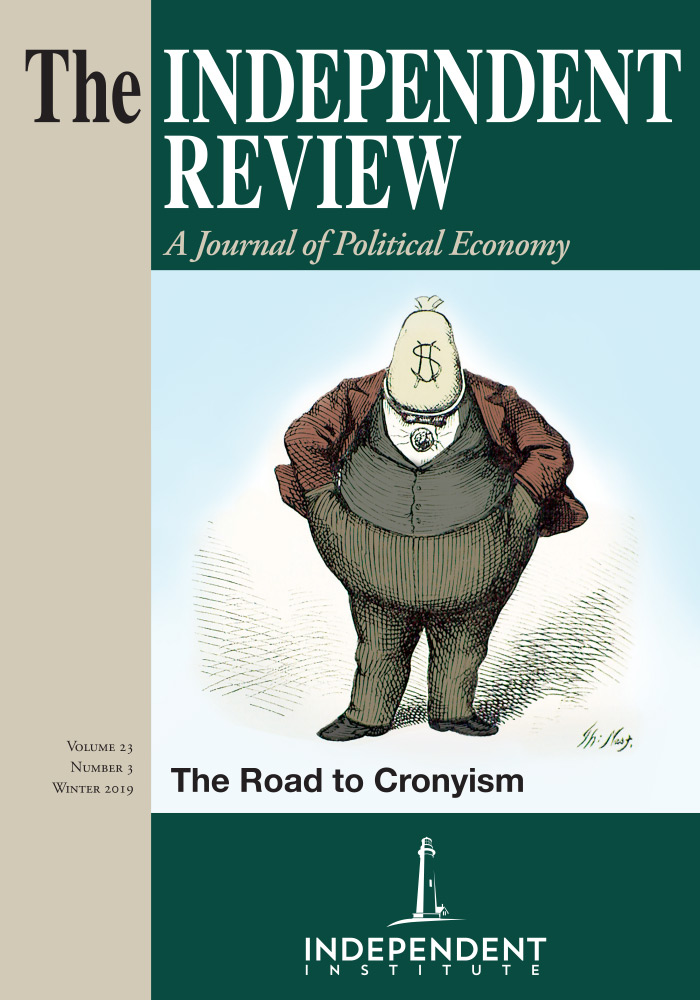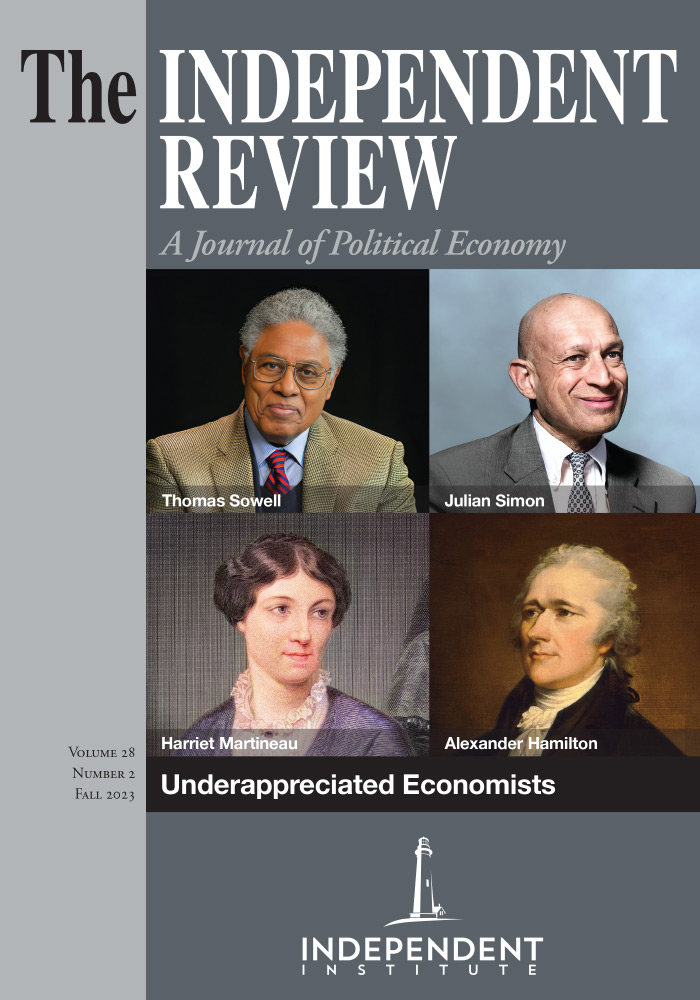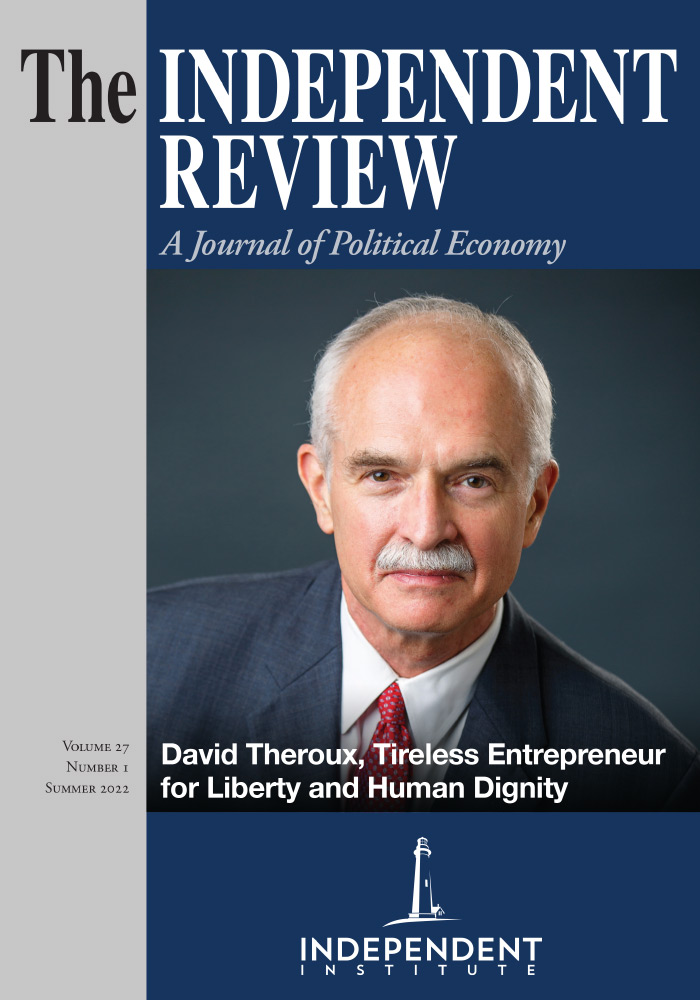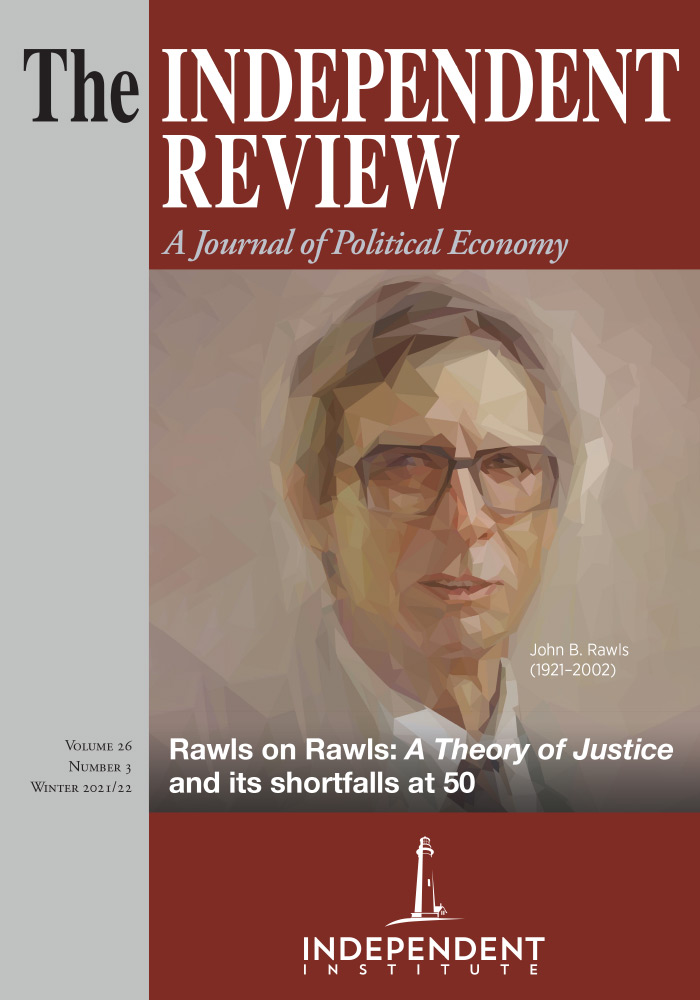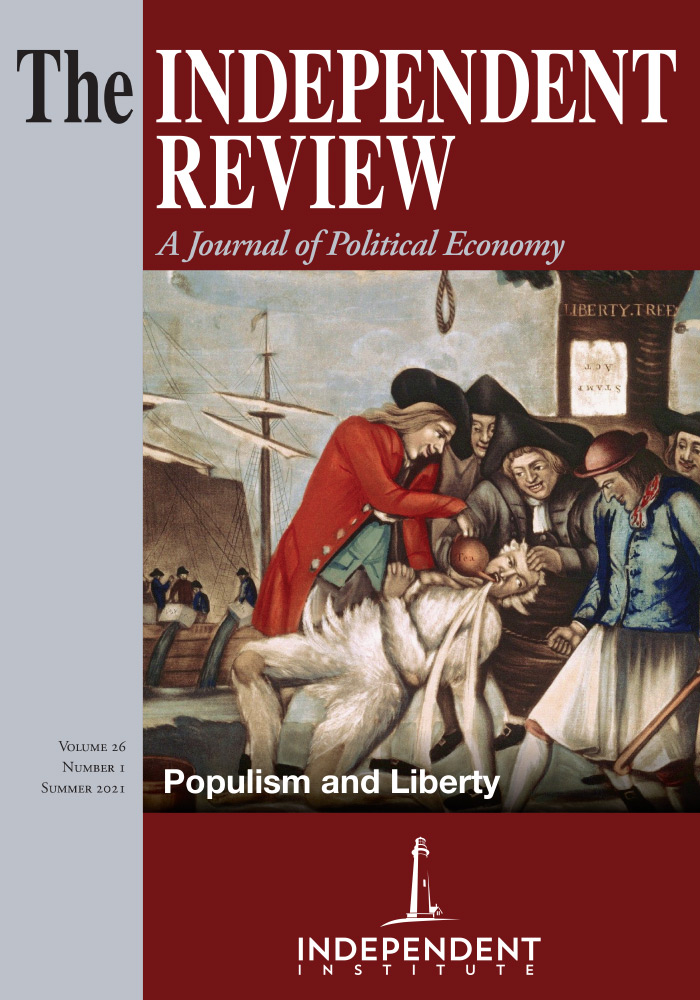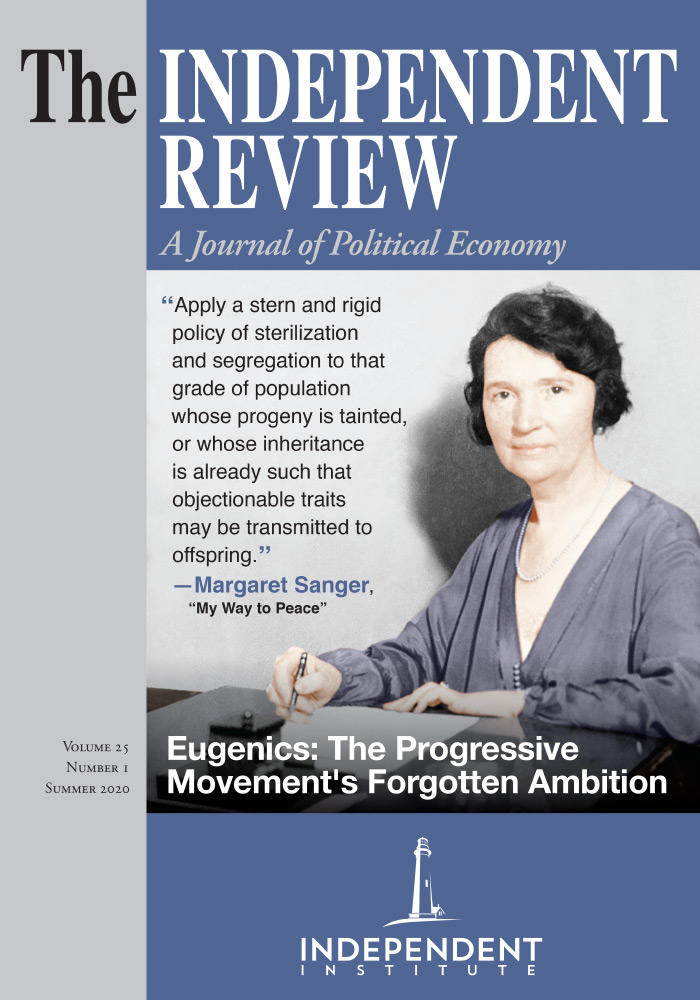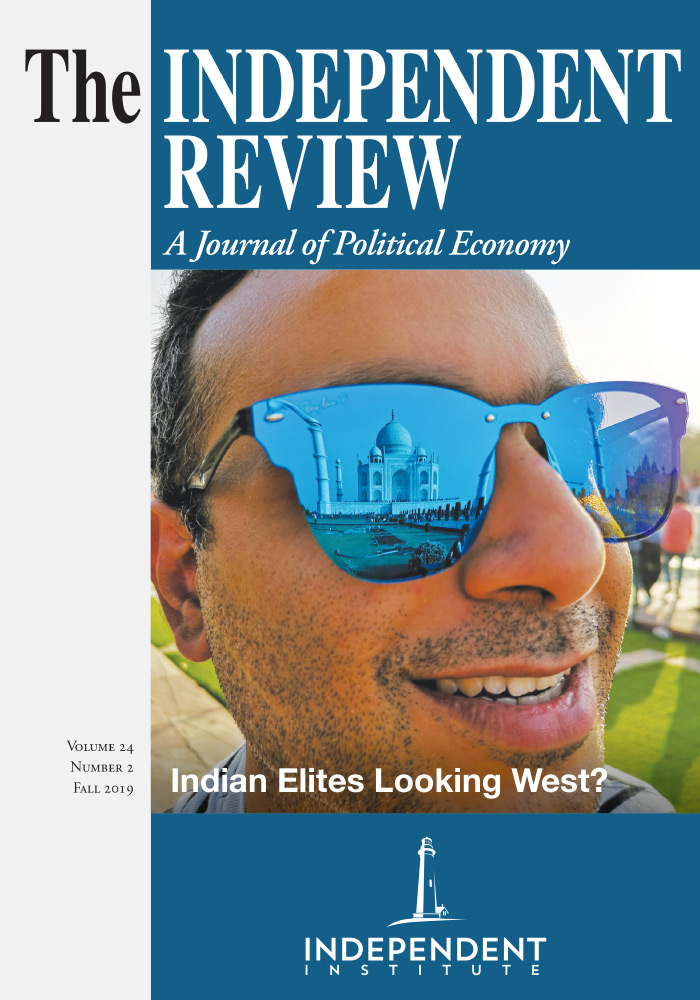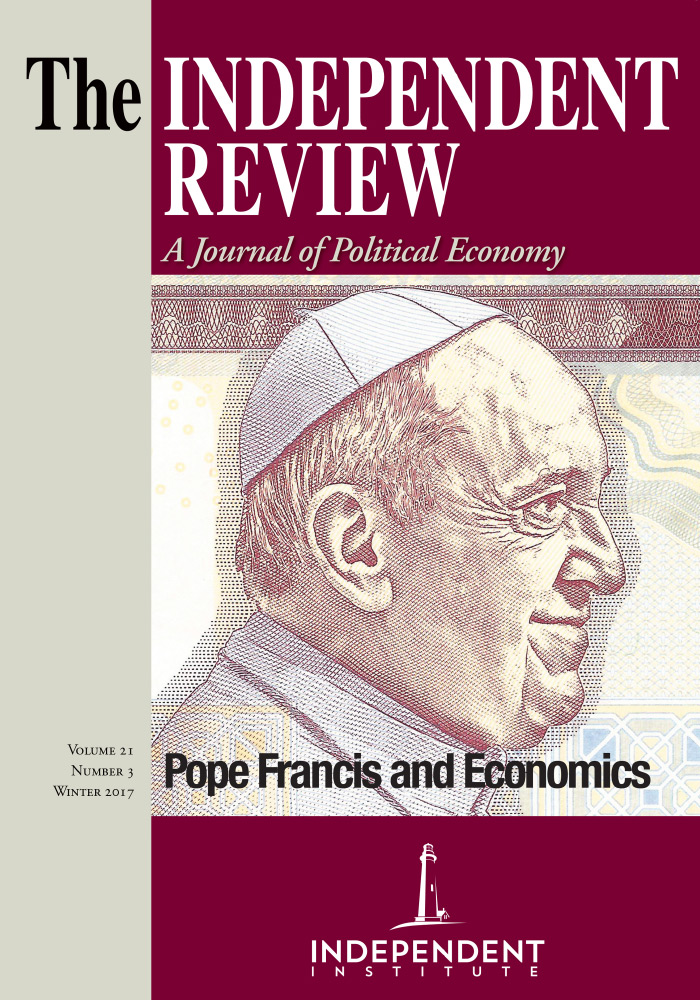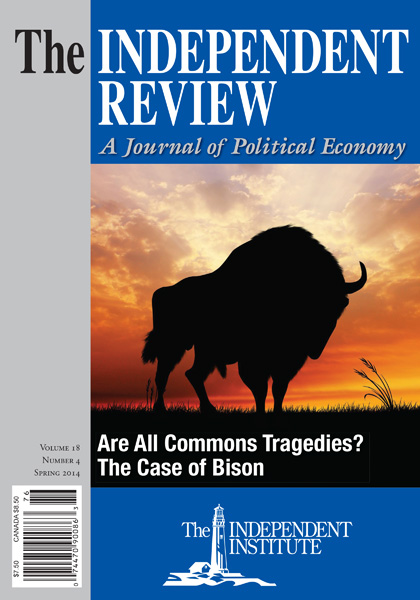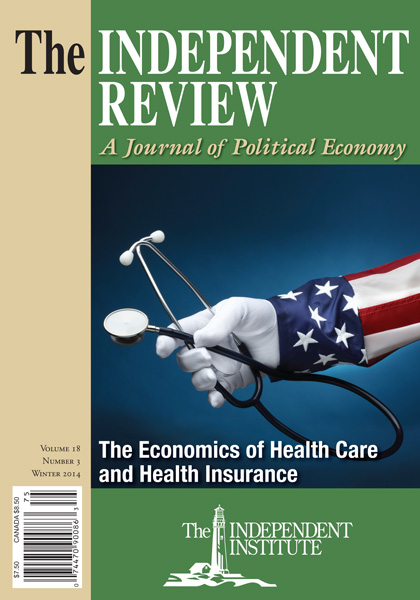Munger and Villareal Diaz show in masterly fashion how public choice economics helps us understand crony capitalism, and we have learned much from their analysis. We contend, though, that the principal argument of their paper fails.
They endeavor to show that “capitalism is not sustainable, and any attempt to set up capitalism in democracies is a step toward crony capitalism Suppose it’s true that capitalism has a tendency—it’s not inevitable, or irreversible, but a tendency nonetheless—to devolve into crony capitalism. Is laissez faire simply the first step on a kind of road to serfdom, where giant corporate syndicates achieve a parallel kind of economic planning every bit as pernicious as that feared by Hayek? Of course, the planning takes the form of cartelized industry, protection from competition and restrictions on innovation, but it is planning nonetheless. Thus, it is at least possible that cronyism is intrinsic to, and not separable from, capitalism.”
In order to understand their thesis, one further long quotation is necessary:
Capitalism is a social system based upon the recognition of individual rights, including private property rights where all goods, both intermediate goods and final goods, are owned privately....An economy remains capitalist so long as the government, or any other agency for that matter, refrains from intervening coercively in the peaceful private lives of citizens. The implications of this fact are substantial: under pure capitalism there are no taxes, no price ceilings, no price floors, no product controls, no subsidies to either the rich or the poor, no public streets, no public schools, no public parks, no central banks, no wars of aggression, no immigration restrictions, etc. Government neither resorts to aggression under capitalism nor does it sanction its use by others, end of story....
Corporatism shares no such description. It is a social system where the government intervenes aggressively into the economy, typically with political instruments that benefit large corporations and enterprises to the detriment of smaller businesses and private citizens. Such instruments include subsidies, tariffs, import quotas, exclusive production privileges such as licenses, anti-trust laws, and compulsory cartelization designs. The definitions are taken from an article by Michael Labeit “Corporatism” and “crony capitalism” are synonyms.)
In order to show that capitalism, thus defined, tends toward crony capitalism, what is required? It seems obvious that one must begin the argument with capitalism. According to the definition of capitalism they offer, there is little or no scope for government intervention in the economy. For their argument, they must show that a laissez-faire system leads to crony capitalism. It is not sufficient to show that starting with crony capitalism, it is difficult to get to capitalism. That is a different argument.
It is the latter argument, though, that Munger and Villareal Diaz offer. They present a description of crony capitalism and show it is difficult and unrealistic to expect capitalists to pass up chances for rent seeking; all too often, reliance on state coercion is a “dominant strategy.” Their argument is a strong one, but how does it show that there is a tendency of capitalism to degenerate into crony capitalism?
Munger and Villareal Diaz might respond that they have anticipated and answered our objection. They say: “All too often market advocates envision ‘real world’ capitalism as retaining many of the features of their own “ideal theory” competitive equilibrium models. When opponents criticize some aspect of markets. . . we dismiss those examples. ‘That’s not capitalism, that’s crony capitalism.’”
This imagined response would fail. We are not saying: “We answer your claim that capitalism leads to crony capitalism by pointing out that ‘crony capitalism’ is not ‘capitalism,’ thus ruling out by definitional fiat negative consequences of capitalism. Rather, we say that you have failed to show that capitalism does have these consequences.”
Perhaps, though, we should take Munger and Villareal Diaz to be presenting a different argument. Suppose we start with an economy that is basically capitalist but has some degree of cronyism and a substantial government presence. From this starting point, is there a tendency toward greater and greater cronyism, culminating in a system that one would no longer want to characterize as capitalist?
If this is their argument, it also fails. They present an excellent account of cronyism and describe incentives for rent seeking behavior. Will a business owner devote resources to rent seeking or instead to productive investment? According to their account, this will depend on the marginal incentives to engage in these activities. They say, about their “Figure 1,” “The condition that “tips” capitalism into crony capitalism is simply the “1st $” marginal accounting profitability of lobbying. So long as the marginal profitability of “pure” capitalist investment is above the 1st $ line, capitalism is sustainable. But if at any point the last $ of investment pays less at the margin than the 1st $ of lobbying, capitalism tips into crony capitalism.”
Suppose one fully accepts their account. (Does one really want to say, though, that “once the returns to political action exceed the return to honest investment any rational investor turns rent-seeker? [p14] Are investors irrational who are in part motivated by the belief that use of state coercion is wrong?). They have failed to show a tendency for the “tipping point” to be reached They give no dynamic model of the evolution of cronyism. Rather, they offer a static description of a system having a degree of cronyism, not a dynamic model showing a tendency for cronyism to keep growing.
There is possible counter to this objection. They might say that it obvious that the United States has passed the tipping point and their model provides the best explanation of what has occurred. This possible counter also fails. We have on it once more a description of what has happened, i.e., that business owners have found the marginal incentives to engage in rent-seeking behavior sufficient to propel us into a corporatist system. They have still failed to go beyond description and have not presented a dynamic model that shows cronyism tends to grow into a system no longer reasonably describable as “capitalist”.
We have tried to show that the main argument of Munger and Villareal does not succeed. They have not shown a tendency for capitalism to lead to crony capitalism; it should be borne in mind, though, that our claim is a limited one. We have not shown, or claimed to show, that their claim is false. That is, we have not argued that capitalism is a stable system that has little or no tendency to lead to crony capitalism. Our claim is only that the main argument advanced by Munger and Villareal Diaz fails.
| Other Independent Review articles by David Gordon | ||
| Summer 2024 | Moderation in the Pursuit of Justice Is a Virtue: Nicholas Rescher’s Quest for a Good Society | |
| Spring 2024 | For a New Liberty after Fifty Years | |
| Spring 2024 | The Early Years of Economics in the United States: The Influence of the German Historical School of Economics on Teaching and Theory | |
| [View All (10)] | ||

